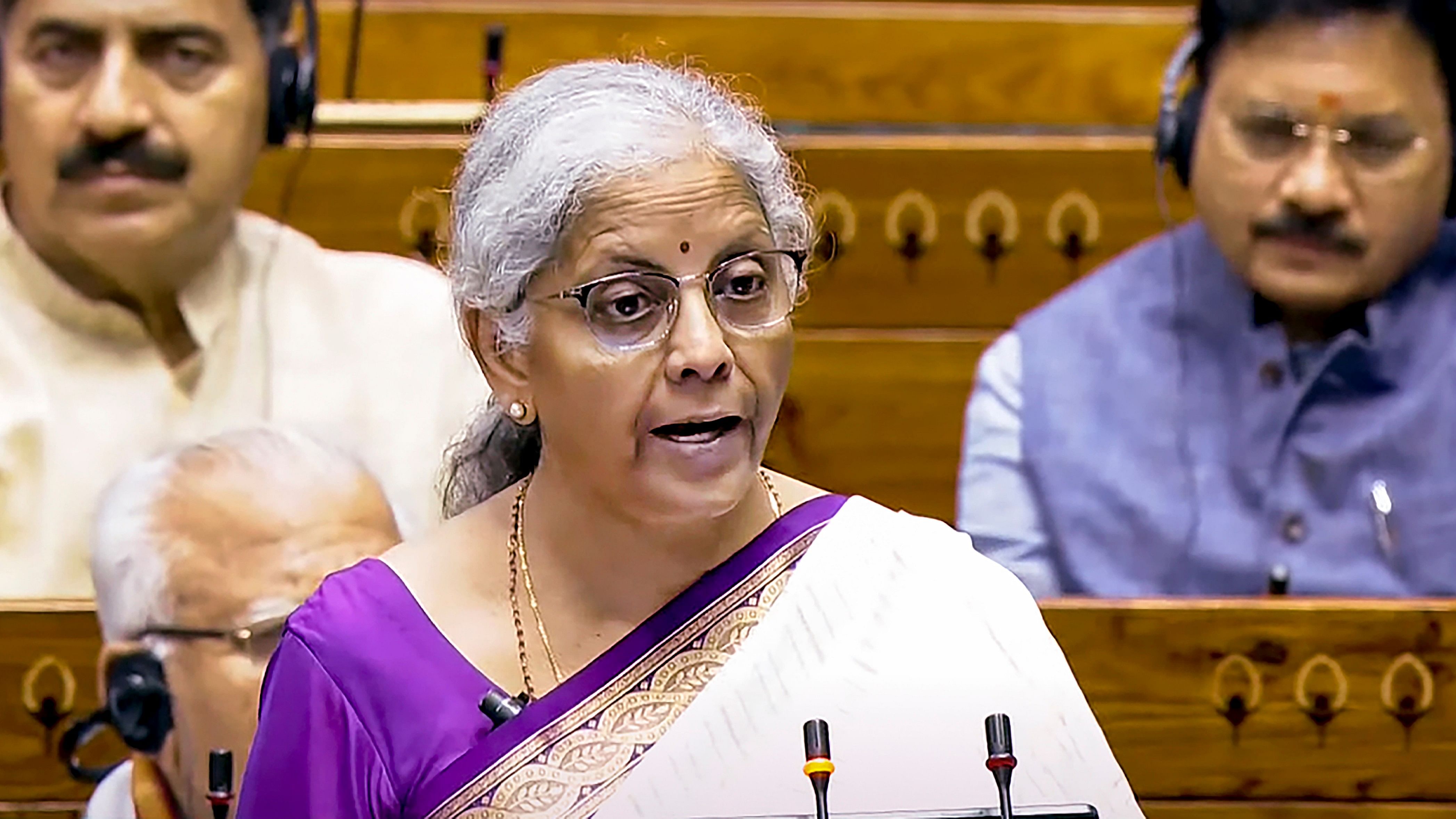
Union Finance Minister Nirmala Sitharaman presenting the Union Budget 2024 in the Parliament.
Credit: PTI Photo
Bengaluru: Space startups across technology domains called the Union Budget proposal for a Rs 1,000 crore Venture Capital (VC) fund the key takeaway for the sector.
The VC fund, envisioned to further the government’s plans to expand India’s space economy by five times in the next 10 years, is billed to spur a new generation of space innovators and entrepreneurs.
Awais Ahmed, founder and CEO of Bengaluru-based space data company Pixxel, called the announcement groundbreaking. Ahmed said the fund underscored the government’s commitment to developing a dynamic space ecosystem. He emphasised the need for larger funds as the sector grows but called the proposal an “excellent start”.
Srinath Ravichandran, co-founder and CEO of Agnikul Cosmos, the Chennai-headquartered launch vehicle manufacturer, said the fund would help larger players emerge from India’s space startup ecosystem. It is aligned with the government’s vision for a bigger Indian share in the global space economy, he said.
The government estimates India’s space economy will grow from $8.4 billion (around 2-3 per cent of the global space economy) to $44 billion by 2033.
India needs to emerge as a strong player in two or three industry sub-sectors to realise its $44-billion target, Pawan Kumar Chandana, co-founder and CEO of Hyderabad-headquartered Skyroot Aerospace, said. “By strategically investing in both its established capabilities and promising new technologies, India's private space sector has an opportunity to capture a significant market share of the global space economy over the coming years,” he said.
The VC fund has the potential to power this growth, according to Vishesh Rajaram, Managing Partner of deep-tech VC firm Speciale Invest. “The trust and focus from the GoI combined with the FDI policy announced earlier this year, will lead to more investment participation in the sector from India and internationally,” he said.
The proposal marks a promising beginning but the follow-through will require a strategic approach involving diverse investments, Anirudh Sharma, CEO of Digantara, said. “We need more domestic customers, especially as space is a strategic sector. It is crucial for the state to act as a primary customer, driving demand and fostering a robust ecosystem,” Sharma said.
Apurwa Masook, CEO of the IISc-incubated SpaceFields, said the fund, complemented with the abolition of the Angel Tax, would benefit domestic and global investors. He, however, noted that the operationalisation of the already-announced Rs 1 lakh crore corpus for R&D and innovation in the sunrise sectors was still awaited.
Union Budget 2024 LIVE | Making a record for any Finance Minister, Nirmala Sitharaman presented her 7th consecutive Union Budget on July 23, 2024 under the Modi 3.0 government. This Budget brought tax relief for the middle class, while focusing on jobs through skilling, incentivising employers. Track the latest coverage, live news, in-depth opinions, and analysis only on Deccan Herald. Also follow us on WhatsApp, LinkedIn, X, Facebook, YouTube, and Instagram.